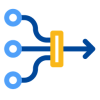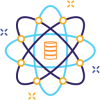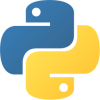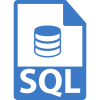Learn Advance Your Future.
Find the best courses, videos, books, podcasts, and blogs to learn a new skill
Trending Skills
Type
Skill level
Cost
A Crash Course in Data Science (Coursera)
In this one-week class, we will provide a crash course in what these terms mean and how they play a role in successful organizations. This class is for anyone who wants to learn what all the data science action is about, including those who will eventually need to manage data scientists.
Foundations of Marketing Analytics by Essec Business School (Coursera)
This course is designed for students, business analysts, and data scientists who want to apply statistical knowledge and techniques to business contexts. For example, it may be suited to experienced statisticians, analysts, engineers who want to move more into a business role, in particular in marketing.
Google Cloud Platform Big Data and Machine Learning Fundamentals (Coursera)
This course introduces participants to the big data capabilities of Google Cloud. Through a combination of presentations, demos, and hands-on labs, participants get an overview of Google Cloud and a detailed view of the data processing and machine learning capabilities. This course showcases the ease, flexibility, and power of big data solutions on Google Cloud.
ntroduction to TensorFlow for Artificial Intelligence, Machine Learning, and Deep Learning (Coursera)
If you are a software developer who wants to build scalable AI-powered algorithms, you need to understand how to use the tools to build them. This course is part of the upcoming Machine Learning in Tensorflow Specialization and will teach you best practices for using TensorFlow, a popular open-source framework for machine learning.
Machine Learning from Stanford University (Coursera)
This course provides a broad introduction to machine learning, datamining, and statistical pattern recognition. Topics include: (i) Supervised learning (parametric/non-parametric algorithms, support vector machines, kernels, neural networks). (ii) Unsupervised learning (clustering, dimensionality reduction, recommender systems, deep learning). (iii) Best practices in machine learning (bias/variance theory; innovation process in machine learning and AI).
Machine Learning for Investment Professionals (Coursera)
This course is uniquely tailored to the needs of investment professionals or those with investment industry knowledge who want to develop a basic, practical understanding of machine learning techniques and how they are used in the investment process. This course is part of the Data Science for Investment Professionals Specialization offered by CFA Institute.
Introduction to Mathematical Thinking (Coursera)
Introduction to Mathematical Thinking. The key to success in school math is to learn to think inside-the-box. In contrast, a key feature of mathematical thinking is thinking outside-the-box _ a valuable ability in today's world. This course helps to develop that crucial way of thinking.
Learn how to think the way mathematicians do – a powerful cognitive process developed over thousands of years. Mathematical thinking is not the same as doing mathematics – at least not as mathematics is typically presented in our school system. School math typically focuses on learning procedures to solve highly stereotyped problems. Professional mathematicians think a certain way to solve real problems, problems that can arise from the everyday world, or from science, or from within mathematics itself. The key to success in school math is to learn to think inside-the-box. In contrast, a key feature of mathematical thinking is thinking outside-the-box – a valuable ability in today’s world. This course helps to develop that crucial way of thinking.






